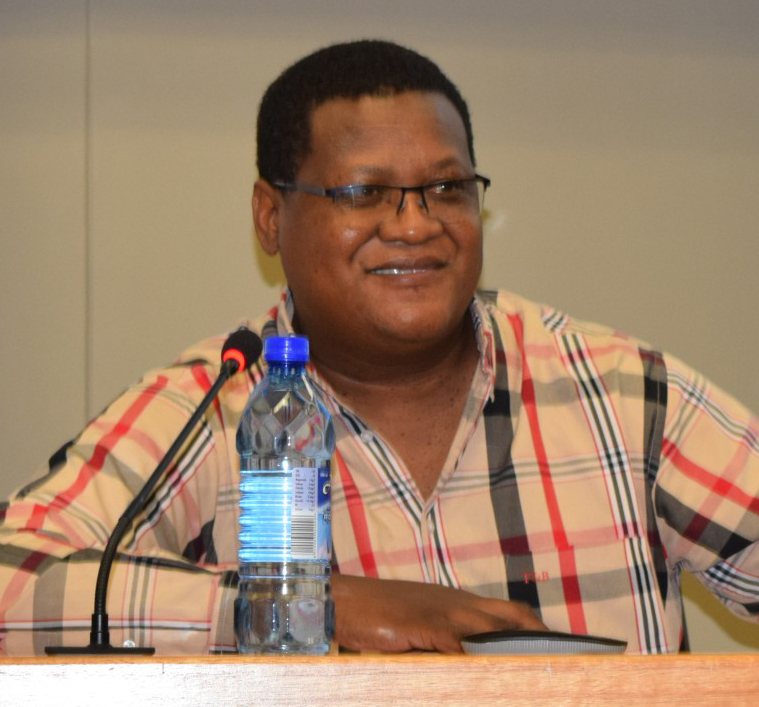By Gofaone Motsamai and Keaoleboga Motshabi
The North-West University’s Faculty of Humanities, in collaboration with the School of Philosophy, hosted a public lecture on 6 September 2024, presented by Prof Bernard Matolino from the University of Pretoria.
The lecture, titled “Governments of National Unity (GNUs) and the African Polity: Insights from the 2024 South African Electoral Outcome”, addressed the state of African democracy and the potential implications of GNUs in governance.
Prof Matolino, an associate professor known for his work in African political theory and Afrocentric democracy, focused on the role of GNUs in resolving disputed electoral outcomes in Africa. He examined South Africa’s 2024 electoral results, which saw no party winning a clear majority, and the possibility of forming a GNU to stabilise governance.
Prof Matolino reflected on Africa's complex relationship with democracy. He noted that, based on global metrics like the Democracy Index, Mauritius remains the only fully democratic nation on the continent, while countries such as South Africa are classified as “flawed democracies.” These flaws, he explained, stem largely from corruption and rising political repression, as seen in several African nations.
“Across Africa, coups and authoritarian governments have grown, leading to a deterioration in political freedoms,” he said. He linked these trends to shrinking political tolerance and the increasing dominance of powerful political elites.
He argued that electoral fraud and weak electoral frameworks have led many African nations to adopt power-sharing agreements. “In countries like Zimbabwe and Guinea, GNUs have been introduced as a way to prevent post-election violence.” However, he warned that while GNUs may be effective in the short term, they often undermine democratic principles by rewarding electoral losers and creating governance structures that are difficult to dismantle.
Turning to South Africa, Prof Matolino explained that while the country faces significant challenges, it remains an exception in many respects. “South Africa’s democratic framework, rooted in a strong constitution and a resilient electoral body, has allowed it to weather political storms,” he said. However, the sharp decline in support for the ANC in 2024 has brought South Africa into discussions about forming a GNU.
Addressing this potential GNU, Prof Matolino explained that it reflects South Africa’s political landscape. “It is not just a political compromise, but a pragmatic response to the electoral results, which left no party with a majority.”
Prof Matolino cautioned against overestimating the effectiveness of GNUs, pointing out the potential risks. “The GNU model may slow the rot in governance, but it can also lead to political stagnation, the compartmentalisation of power, and entrenched self-interest.”
He concluded by urging vigilance. “While it is not good scholarship to prophesy, we know that South Africa’s divisions are deep. The GNU offers a chance for political reform, but it also carries risks.”

Prof Bernard Matolino.
